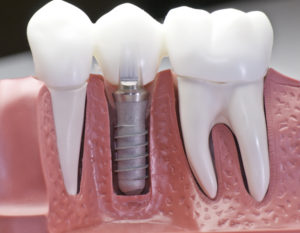December 19, 2017
Dentures have long been the traditional solution for tooth replacement. However, when it comes to efficiency, cleanliness, and a natural smile, full-arch dental implants can offer excellent solutions.
Why Should You Choose Dental Implants?
Because dentures aren’t permanent, they come with a number of drawbacks. They have to be removed to be cleaned. They don’t remain fixed with any level of security. They’re easy to lose. They can cause discomfort and even pain as fit changes and they look artificial. Dental implants can replace these inconveniences with a number of benefits:
- Dental implants are more comfortable and secure
- Implants provide a permanent, natural smile just like real teeth
- Dental implants behave more naturally when eating or speaking
- Implants offer improved health options, including cleanliness and jawbone retention
While dentures remain a viable solution for some, many others are freeing themselves from the shackles of denture care. Implants can be cared for just like your real teeth, and bring back the confidence inherent in a healthy smile.
How Do Full-Arch Dental Implants Work?
The implant procedure may differ depending on the number of teeth that need to be replaced and any other factors affecting the amount of work to be done, such as the strength of the remaining bone. A full arch implant requires removal of the surrounding teeth to fit an entirely new row of teeth to the upper or lower jawbone. The new teeth are affixed through surgical implants placed in the jawbone, using either four or six implant posts. The procedure may be completed in a single day, or may require extra time for proper fitting. Some pain can be expected during recovery, but is usually manageable.
Trust a Dentist With Years of Expertise
For full-arch dental implants in Tampa, FL, you want a dentist you can trust to advise you on why dental implants could be right for you. Dr. Sarah Jockin has worked with patients to place thousands of implants, and can consult with you to determine what’s best for your oral health.
